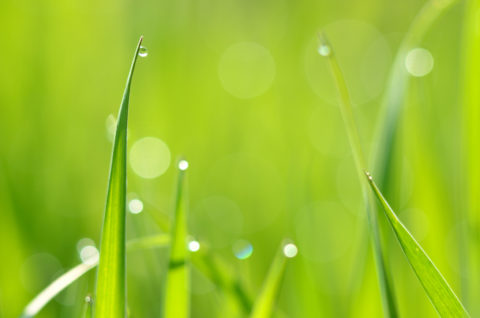
Water-wise gardening will save you time, money and effort.
It’s only May, and large parts of Washington are already in a drought. On Monday Governor Inslee announced that he is declaring a drought emergency for nearly half the state. The emergency is caused by low snowfall and a lower than average snowpack.
Fortunately, water supplies for Seattle, Everett and Tacoma should be sufficient throughout the summer. However, the water you use reduces stream flows. Having enough water in streams is critical for endangered salmon species. And our local orcas are struggling to find enough salmon to eat.
You can have a beautiful landscape that requires less water than you may be currently using. And you will save time, money and effort in the process.
Here are seven tips for water-wise gardening.
1. Choose native and drought-resistant plants
Your local nursery or garden center can help with advice on the right plants for your landscape. You may also want to visit native plant nurseries. And ask your friends and neighbors what works for them.
Native plants have benefits for birds and wildlife. But you don’t need to limit your choices. There is a wide variety of water-wise plants, such as Mediterranean plants and succulents, that thrive in western Washington. Find out more:
- List of native plant nurseries in Washington state
- Our recent blog post with information on growing drought-tolerant plants
2. Limit the amount of area devoted to your lawn
Lawns need great quantities of water, particularly in the summer. Replace part of your lawn with plants that will grow well with less water.
Focus first on replacing areas where your lawn may struggle to grow well, such as in the shade or where there is a lot of foot traffic. Our designers would be happy to help you with water-wise plantings that will work well for you.
3. Keep your soil healthy and uncompacted
Irrigation water can move more easily through healthy soil. Roots will grow denser and deeper, making plants more drought-resistant.
Organic matter, such as compost and mulch, plays a key role in feeding microorganisms that keep soil healthy. Our natural lawn, tree and shrub care services focus on improving soil health.
4. Add mulch to garden beds
Thick layers of mulch reduce water evaporation, insulate soil from hot and cold temperatures, limit weed growth and prevent erosion. See our recent blog post about using mulch to reduce summer water needs.
5. Group plants by water needs
Arrange plantings in zones based on water use. Group thirsty plants together, including things like bedding plants and lawn.
Keep low-water use plants like shrubs and drought-tolerant perennials away from plants that need more water. Mediterranean-zone plants can suffer if they are overwatered as you care for their neighbors.
Keep shade plants in the shade. This will help prevent them from drying out.
6. Use efficient irrigation methods
Drip irrigation and soaker hoses are great ways to water garden beds. Here are tips on how to use drip irrigation and soaker hoses. It includes a video on how to avoid common mistakes with a soaker hose.
For watering lawns, look for a sprinkler timer with an intermittent cycle. Starting and stopping the sprinkler allows the water to soak in more deeply. This moistens the entire root zone and encourages roots to grow deeper.
See more in our videos on water timers and on wands, hoses and sprinklers.
If you have an automatic irrigation system, make sure the system is functioning well and has no leaks that will waste water. Install a rain gauge and a controller that supports zone watering. Find out more about managing automatic systems.
7. Water deeply and infrequently
If you water your plants or lawn for a short time every day, they will develop shallow roots. The plants will be weaker and more prone to drought stress. On the other hand, if you water your plants every few days but for a longer period of time, they will become tougher and develop deeper roots. They will be less likely to suffer from drought stress when the summer gets really hot.
The exception is a newly planted landscape or lawn. You will have to water often to keep plants alive and healthy until they can establish roots. The first season is the most critical.
